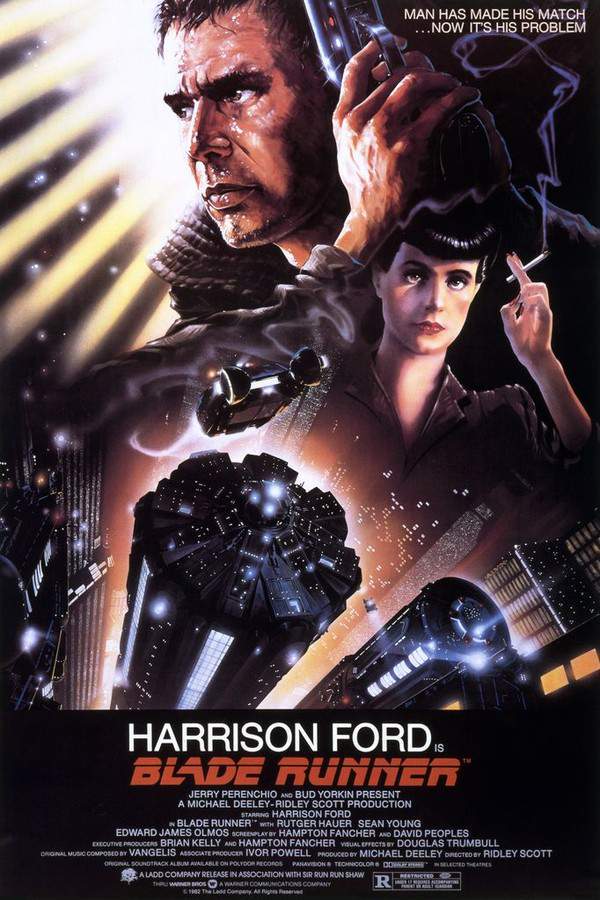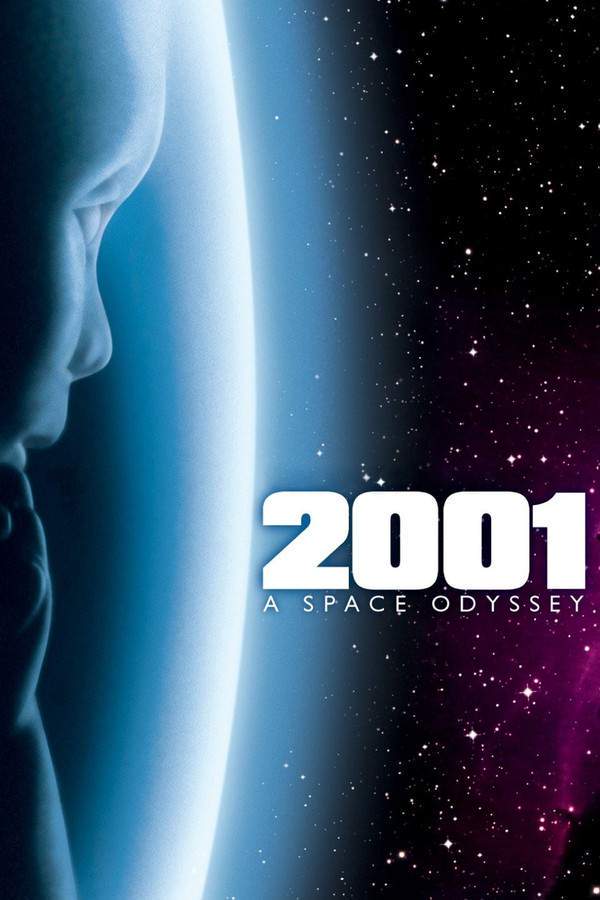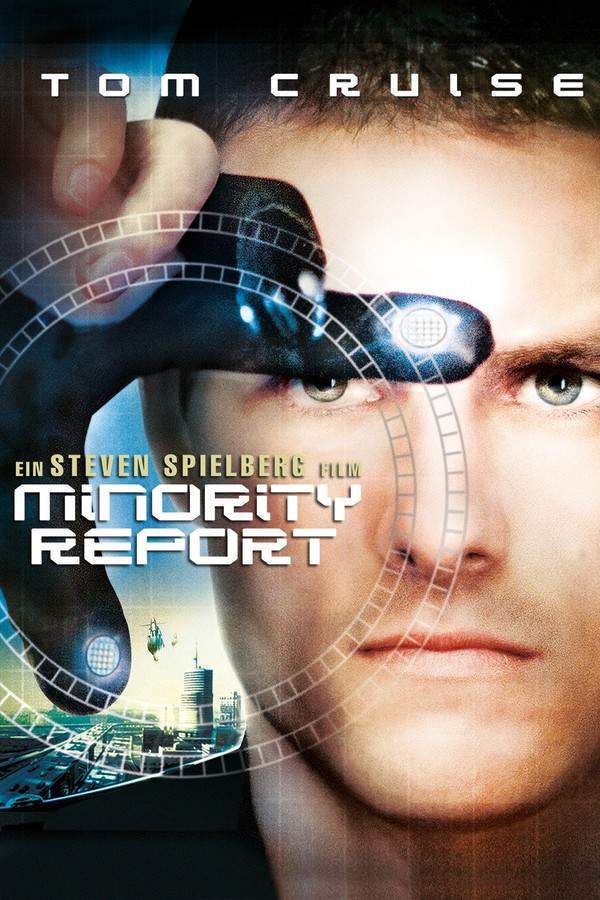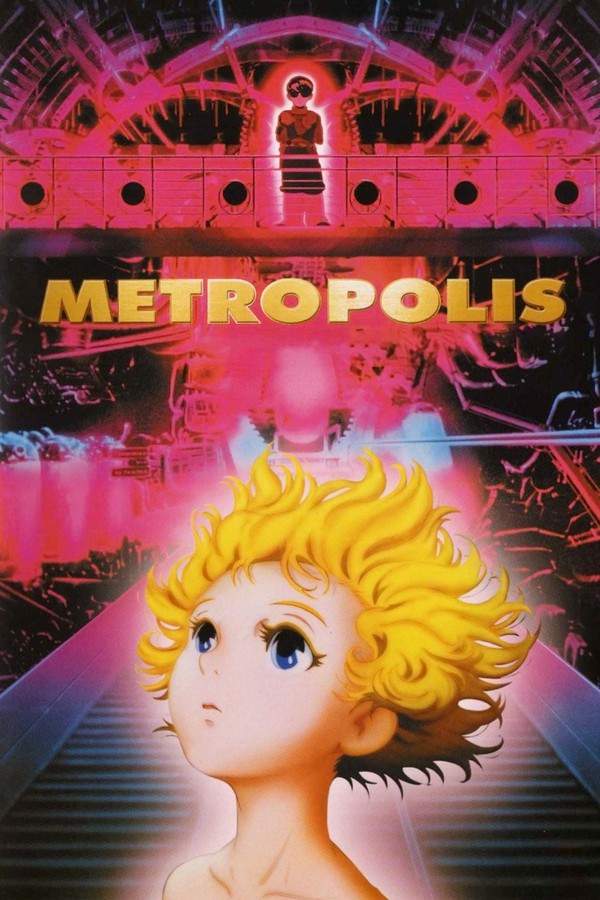What's After the Blog?
Genres • Technology
Sci-Fi Cinema: Exploring the Genre's Impact on Technology
Delve into the world of sci-fi cinema and discover its profound impact on technological innovation, ethical considerations, and societal expectations.
March 8, 2024

Movies mentioned in this article
Sci-Fi Cinema: Exploring the Genre’s Impact on Technology
Introduction: The Symbiotic Relationship Between Sci-Fi and Technology
Science fiction cinema has long been a harbinger of imagination, often portraying futuristic landscapes filled with advanced technology and innovative inventions. This genre has not only captivated audiences with its creative narratives but also significantly influenced the course of real-world technological advancement. The symbiotic relationship between sci-fi and technology is profound, as these films often reflect society’s hopes, fears, and expectations for the future. From the spaceships traversing galaxies in Star Wars (Star Wars) to the dystopian worlds depicted in Blade Runner (Blade Runner), sci-fi cinema offers a window into the possibilities of human ingenuity and technological progress. These films serve not just as entertainment but also as sources of inspiration for scientists, engineers, and technologists, who have often turned science fiction into science fact.
The Predictive Power of Sci-Fi Movies
“How have sci-fi movies predicted future technologies?” This question highlights the uncanny ability of science fiction films to anticipate technological innovations long before they become a reality. The genre has a rich history of envisioning future technologies that eventually come to fruition. A classic example is 2001: A Space Odyssey (2001: A Space Odyssey), which predicted tablet computers and space travel long before they became part of our everyday lives. Similarly, Minority Report (Minority Report), with its depiction of gesture-controlled interfaces and personalized advertising, foresaw advancements in interactive technology and targeted marketing. These films, among others, demonstrate the remarkable foresight of sci-fi filmmakers and their ability to not only imagine but also inspire the creation of new technologies.
Sci-fi cinema’s predictions often stem from collaborations with scientists and futurists, ensuring a degree of realism and scientific plausibility in their depictions of the future. This blend of creativity and scientific grounding makes the genre a powerful tool for envisioning the potential directions of human advancement. As we continue to explore the world of film and technology at What’s After the Movie, the prescient visions of sci-fi cinema remain a testament to the genre’s enduring impact on our collective imagination and technological aspirations.
Sci-Fi as a Catalyst for Technological Innovation
The influence of science fiction cinema extends beyond predicting future technologies; it also acts as a catalyst for real-world technological innovation. Filmmakers, through their imaginative visions, have inspired scientists and engineers to turn science fiction into reality. This phenomenon is evident in the way Star Trek (Star Trek) inspired modern communication devices. The iconic communicator from the series bears a striking resemblance to today’s mobile phones, showcasing how sci-fi can spark ideas in the minds of technology developers. Similarly, virtual reality, as depicted in films like The Matrix (The Matrix), has motivated advancements in immersive technology, pushing the boundaries of how we interact with digital environments.
This inspiring role of sci-fi cinema is not limited to specific gadgets or technologies; it also influences broader scientific and technological pursuits. Space exploration, for instance, has been significantly fueled by the fascination and curiosity driven by sci-fi movies. Films like Interstellar (Interstellar) and The Martian (The Martian) not only entertain but also ignite a passion for space science and the exploration of the cosmos. By presenting compelling narratives set in space, these movies foster a public interest in space programs and inspire the next generation of astronomers, astronauts, and space engineers.
The Influence of Sci-Fi on Public Perception and Expectation of Technology
Sci-fi cinema plays a pivotal role in shaping public expectations and perceptions of future technologies. Films that depict advanced technology, artificial intelligence, and futuristic societies influence how people envision the future of technology and its potential impact on society. For example, Blade Runner (Blade Runner) has significantly influenced societal views on artificial intelligence and robotics, painting a picture of a future where humans coexist with sophisticated androids. This portrayal raises important questions about the ethics and implications of AI, influencing public discourse on these topics.
Moreover, sci-fi movies often reflect the hopes and fears of society regarding technological advancement. They can serve as a form of speculative exploration, pondering the potential consequences, both positive and negative, of technological growth. This speculative aspect is crucial in encouraging audiences to think critically about the direction of technological development and its ramifications. Films like Ex Machina (Ex Machina), which explores the theme of AI ethics, or Black Mirror episodes that delve into the darker aspects of technology, are prime examples of how sci-fi can provoke thought and discussion about the future we are creating.
In essence, the impact of sci-fi cinema on public perception and expectation of technology is significant. It not only entertains but also educates and informs, playing a vital role in shaping the collective consciousness regarding the future of technology and its role in our lives.
The Evolution of Sci-Fi Cinema and Its Reflection of Technological Trends
The evolution of science fiction cinema provides a fascinating lens through which to view the changing trends and advancements in technology over the decades. From the early depictions of space travel and alien encounters to the modern-day explorations of artificial intelligence and virtual reality, sci-fi films have continually adapted to reflect the scientific understanding and technological aspirations of their times. Classic films like Metropolis (Metropolis), one of the earliest and most influential sci-fi movies, showcased futuristic urban landscapes and machinery that were far ahead of its time. This contrast with modern sci-fi, which often focuses on more subtle and complex technologies like AI, as seen in Her (Her), or the ethical and societal implications of biotechnology, as explored in Gattaca (Gattaca).
This shift in focus within sci-fi cinema from grandiose physical inventions to more intricate and invisible technologies mirrors the real-world transition from industrial age inventions to the information and digital age breakthroughs. As our technological capabilities have grown, so has the scope and depth of the genre’s exploration of these advancements. Sci-fi cinema not only reflects current technological trends but also anticipates future ones, often setting the stage for what is to come in the real world.
The Role of Special Effects: Pushing the Boundaries of What’s Possible on Screen
“How has the advancement of technology influenced the special effects in sci-fi movies?” The progress in special effects technology has been a driving force behind the evolution of sci-fi cinema, enabling filmmakers to bring their most ambitious visions to life. The development of computer-generated imagery (CGI) has revolutionized the genre, allowing for the creation of stunningly realistic and imaginative worlds that were previously impossible to depict. Movies like Avatar (Avatar) and Gravity (Gravity) showcase the incredible potential of modern special effects, creating immersive experiences that transport audiences to other worlds.
The advancements in special effects have also allowed sci-fi cinema to explore more complex and abstract concepts, such as the visualization of quantum realms in Ant-Man (Ant-Man) or the depiction of multi-dimensional travel in Interstellar (Interstellar). These technological innovations in filmmaking have expanded the boundaries of the genre, enabling storytellers to craft narratives that are not only visually spectacular but also intellectually stimulating.
In essence, the advancements in special effects technology have played a crucial role in the evolution of sci-fi cinema. They have not only enhanced the visual appeal of these films but have also broadened the scope of what can be imagined and depicted on screen, reflecting and contributing to the genre’s ongoing exploration of technological possibilities.
Challenges and Critiques: The Ethical Implications of Sci-Fi’s Technological Visions
Science fiction cinema, while celebrated for its imaginative exploration of technology, also confronts a myriad of ethical challenges and critiques. These films often delve into the moral and societal implications of technological advancements, raising critical questions about humanity’s relationship with technology. For instance, Ex Machina (Ex Machina) explores the ethical boundaries of artificial intelligence, questioning the implications of creating sentient beings. Similarly, Gattaca (Gattaca) addresses the ethical concerns surrounding genetic engineering and the potential for a new form of eugenics.
These ethical explorations are crucial in sci-fi cinema, as they prompt audiences to consider the potential consequences of unchecked technological development. The genre often serves as a cautionary tale, warning of the dangers of over-reliance on technology or the dehumanizing effects it can have. This aspect of sci-fi is particularly relevant in today’s rapidly evolving technological landscape, where issues such as data privacy, AI ethics, and genetic modification are becoming increasingly pertinent.
Moreover, sci-fi films have been critiqued for sometimes presenting a one-sided, utopian view of technology, failing to fully address the complexities and potential downsides of their imagined futures. This critique highlights the responsibility of filmmakers to present balanced views of technology, acknowledging both its potential benefits and inherent risks.
Conclusion: The Continuing Impact of Sci-Fi Cinema on Future Technology
In conclusion, science fiction cinema holds a unique and powerful position in both reflecting and shaping our perceptions of technology. Through its imaginative storytelling, the genre has predicted and inspired technological advancements, pushing the boundaries of what is considered possible. Sci-fi movies have also played a pivotal role in shaping public expectations and perceptions of future technologies, often serving as a mirror to our hopes, fears, and ethical concerns about the technological world we are building.
As we continue to explore the interplay between cinema and technology on What’s After the Movie, the significance of sci-fi cinema in our understanding of technology and its impact on society remains undeniable. The genre not only entertains but also educates and provokes thought, making it an essential part of the cultural conversation about the future of technology.
Continue reading

What's After the Movie?
Not sure whether to stay after the credits? Find out!
Explore Our Movie Platform
New Movie Releases (2025)
Famous Movie Actors
Top Film Production Studios
Movie Plot Summaries & Endings
Major Movie Awards & Winners
Best Concert Films & Music Documentaries
Movie Collections and Curated Lists
© 2025 What's After the Movie. All rights reserved.





















